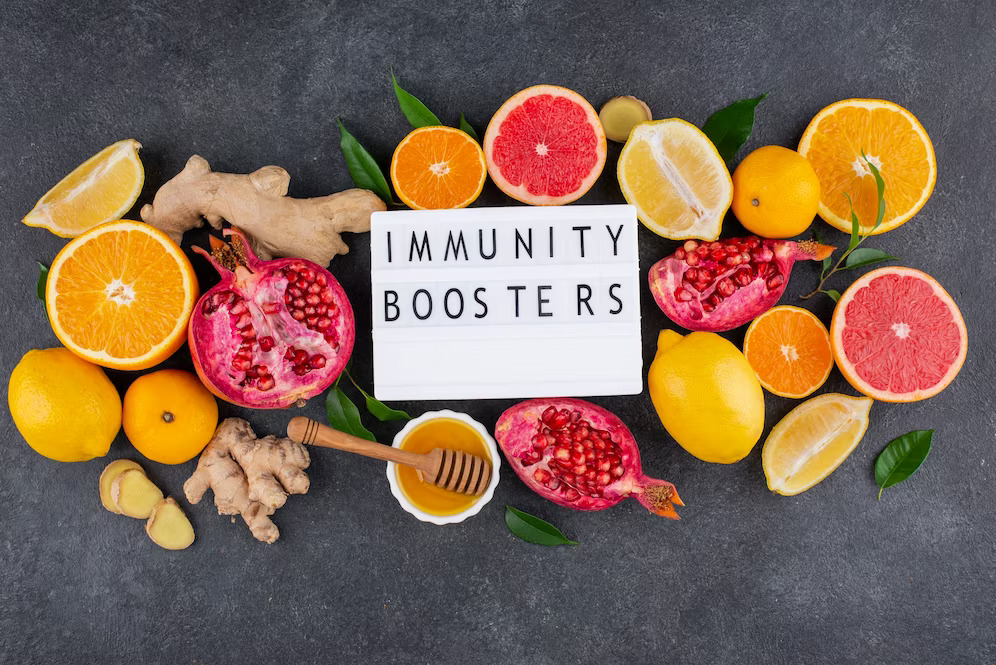Heart disease, a silent killer that claims millions of lives each year, can largely be prevented through dietary choices. Our everyday food habits play a significant role in determining heart health. By being aware of the foods that harm our heart and taking proactive steps, we can protect ourselves from the devastating effects of cardiovascular diseases. In this article, we will explore the top eight foods that should be avoided for a healthy heart.
Maintaining a healthy heart is vital for overall well-being. Heart disease, including conditions like coronary artery disease and heart attacks, remains one of the leading causes of death globally. While various risk factors contribute to heart disease, such as genetics and lifestyle choices, our diet has a significant impact on heart health.
Understanding the Importance of Heart Health
Before delving into the specific foods to avoid, it is crucial to recognize why heart health is essential for our overall well-being. The heart serves as the lifeline of our body, pumping blood and nutrients to every cell, tissue, and organ. When our heart is compromised, it can lead to serious health complications and a reduced quality of life. By prioritizing heart health, we can enhance our longevity and reduce the risk of heart disease.
The Impact of Diet on Heart Health
Our dietary choices directly impact our heart health. Consuming foods that are rich in nutrients and low in harmful substances can promote a strong and healthy heart. On the other hand, regularly indulging in foods that are detrimental to heart health can increase the risk of heart disease, stroke, and other cardiovascular disorders.
Role of Food in Heart Disease
A significant body of research demonstrates the connection between our diet and heart disease. Certain foods and nutrients can contribute to the development and progression of heart disease. By understanding these connections, we can make informed decisions and choose heart-healthy alternatives.
Common Culprits Behind Heart Disease
Several foods and ingredients have been identified as common culprits behind heart disease. These include highly processed foods, trans fats, excessive sodium, refined grains and sugars, saturated and trans fats, high cholesterol foods, red meat, processed meats, and artificially sweetened foods and beverages. By being aware of these culprits, we can take steps to limit our intake and protect our hearts.
The Top 8 Foods to Avoid
In this section, we will delve into the top eight foods that should be avoided for a healthy heart. By recognizing their negative impact, we can make better dietary choices and prioritize heart-healthy alternatives.
Highly Processed Foods
Processed Meats
Processed meats, such as sausages, bacon, and hot dogs, are packed with sodium, preservatives, and unhealthy fats. They often contain high levels of sodium, which can increase blood pressure and stress the heart. Regular consumption of processed meats has been linked to an increased risk of heart disease and other health issues.
Sugary Beverages and Soda
Sugary beverages and sodas are not only loaded with empty calories but also contribute to weight gain and an increased risk of heart disease. These drinks are typically high in added sugars, which can lead to obesity, diabetes, and cardiovascular problems. Opting for water, unsweetened tea, or natural fruit juices is a healthier choice for quenching thirst and maintaining heart health.
Trans Fats and Fried Foods
The Hidden Dangers of Trans Fats
Trans fats, often found in hydrogenated oils, margarine, and many commercially baked goods, are notorious for their harmful effects on heart health. They raise bad cholesterol (LDL) levels and decrease good cholesterol (HDL) levels, leading to an increased risk of heart disease. Avoiding trans fats by reading food labels and choosing healthier cooking oils can greatly benefit heart health.
Fried Foods and their Impact on Heart Health
Fried foods, although tempting in taste, can wreak havoc on our hearts. They are typically high in unhealthy fats, calories, and often contain trans fats. Regularly consuming fried foods can contribute to weight gain, high cholesterol levels, and an increased risk of heart disease. Opting for grilled, baked, or steamed alternatives can satisfy cravings while promoting heart health.
Excessive Sodium Intake
Salt and its Effects on Blood Pressure
A high sodium intake is strongly associated with elevated blood pressure levels, which increases the strain on the heart. Prolonged high blood pressure can lead to heart disease and other cardiovascular complications. It is crucial to monitor and limit our sodium intake by avoiding processed foods, using herbs and spices to enhance flavor, and choosing low-sodium alternatives.
High-Sodium Foods to Watch Out For
Several commonly consumed foods can have unexpectedly high sodium content. These include canned soups, processed snacks, cured meats, and fast food. Being mindful of these high-sodium foods and opting for fresh, whole foods can significantly reduce our sodium intake and promote heart health.
Refined Grains and Sugars
The Downsides of Refined Grains
Refined grains, such as white bread, white rice, and pastries, have been stripped of their fiber and nutrients, leaving behind simple carbohydrates. These carbohydrates can cause spikes in blood sugar levels and contribute to weight gain and insulin resistance. Choosing whole grains, such as whole wheat bread and brown rice, provides more fiber and nutrients, supporting heart health.
Added Sugars and their Impact on Heart Health
Added sugars, found in various processed foods and beverages, contribute to obesity, diabetes, and heart disease. Excessive sugar consumption can lead to increased triglyceride levels, higher blood pressure, and a higher risk of heart attacks. By reducing the intake of sugary snacks, sodas, and sweetened beverages, we can protect our hearts.
Saturated and Trans Fats
Understanding Saturated Fats
Saturated fats, commonly found in animal products like fatty cuts of meat, whole milk, butter, and cheese, can increase bad cholesterol levels and negatively impact heart health. While they should be limited in our diet, it’s important to note that not all saturated fats are created equal, and some sources like coconut oil have debated health benefits.
Trans Fats: A Big Culprit Behind Heart Disease
Similar to saturated fats, trans fats raise bad cholesterol levels and lower good cholesterol levels. These fats are commonly found in baked goods, fried foods, snacks, and margarine. Avoiding trans fats is crucial for heart health. Checking food labels and opting for products with zero trans fats can help in making healthier choices.
High Cholesterol Foods
Dietary Cholesterol and its Effects on Heart Health
While dietary cholesterol has a lower impact on blood cholesterol levels compared to saturated and trans fats, it is still essential to moderate our intake. Foods high in dietary cholesterol, such as egg yolks, shrimp, and organ meats, can contribute to raised cholesterol levels in some individuals. Balancing cholesterol-rich foods with a heart-healthy diet is recommended.
Foods High in Cholesterol to Limit
Apart from being high in cholesterol, certain foods, such as organ meats and full-fat dairy products, can also be high in saturated fats. By reducing the consumption of these foods and opting for lean sources of protein and low-fat dairy alternatives, we can maintain a heart-healthy diet.
Red Meat and Processed Meats
The Connection Between Red Meat and Heart Disease
Research suggests that regularly consuming red meat, particularly processed red meat like sausages and deli meats, increases the risk of heart disease. The high levels of saturated fats, cholesterol, and sodium found in red meats can contribute to the development of cardiovascular problems. Instead, choose lean protein sources like poultry, fish, and legumes.
Processed Meats: A Serious Risk to Heart Health
As mentioned earlier, processed meats carry several risks to heart health. The combination of high sodium, unhealthy fats, and added preservatives make them a detrimental choice. Minimizing processed meat consumption and opting for fresh, unprocessed alternatives can protect our hearts.
Artificially Sweetened Foods and Beverages
The Controversy Surrounding Artificial Sweeteners
Artificial sweeteners like aspartame, saccharin, and sucralose have been widely used as sugar substitutes. However, there is ongoing debate about their effects on heart health. While they provide fewer calories, some studies suggest a potential link between artificial sweeteners and an increased risk of heart disease. Moderation and choosing naturally sweet foods and drinks are recommended.
Potential Impacts on Heart Health
Some studies indicate that artificial sweeteners may contribute to weight gain, metabolic disorders, and changes in gut bacteria. These factors can indirectly impact heart health. To promote a healthy heart, we should limit our intake of artificially sweetened foods and beverages, focusing on whole, natural options.
Healthy Alternatives and Tips for a Heart-Healthy Diet
While it’s essential to avoid the foods mentioned above, it’s equally crucial to incorporate heart-healthy alternatives into our diet. This section will provide tips and recommendations for maintaining a heart-healthy lifestyle, such as consuming fruits and vegetables, opting for lean proteins, choosing whole grains, and incorporating regular physical activity.
Protecting our hearts starts with making conscious choices about the foods we consume. By avoiding highly processed foods, trans fats, excessive sodium, refined grains and sugars, saturated and trans fats, high cholesterol foods, red meat, processed meats, and artificially sweetened foods and beverages, we can significantly reduce the risk of heart disease. Prioritizing a heart-healthy diet, along with regular exercise and other lifestyle changes, can help us safeguard ourselves from the silent killers.
FAQs
Q1: Are all fats bad for heart health?
A1: Not all fats are bad for heart health. While saturated and trans fats should be limited, unsaturated fats, found in sources like nuts, avocados, and olive oil, can be beneficial when consumed in moderation.
Q2: Can I still enjoy occasional treats while maintaining a heart-healthy diet?
A2: Yes, occasional treats are fine as long as they’re consumed in moderation. It’s important to balance our overall diet with nutritious foods and prioritize heart-healthy choices.
Q3: Is it necessary to completely eliminate processed foods from my diet?
A3: Complete elimination might be challenging, but reducing the intake of processed foods is recommended for improved heart health. Opt for fresh, whole foods whenever possible.
Q4: Can exercise alone compensate for an unhealthy diet in terms of heart health?
A4: While regular exercise is crucial for heart health, it cannot fully compensate for an unhealthy diet. A balanced approach that includes both nutritious eating and physical activity is ideal.
Q5: What are some heart-healthy substitutes for sugary beverages?
A5: Water, unsweetened tea, and herbal infusions are excellent alternatives to sugary beverages. Additionally, freshly squeezed fruit juices without added sugars can provide natural sweetness in moderation.

David M is a seasoned author renowned for his expertise in health tips and homemade remedies. With a passion for wellness, he diligently researches and meticulously analyzes a plethora of online resources, ensuring their credibility. David’s dedication shines through as he curates invaluable information, catering to health enthusiasts.










